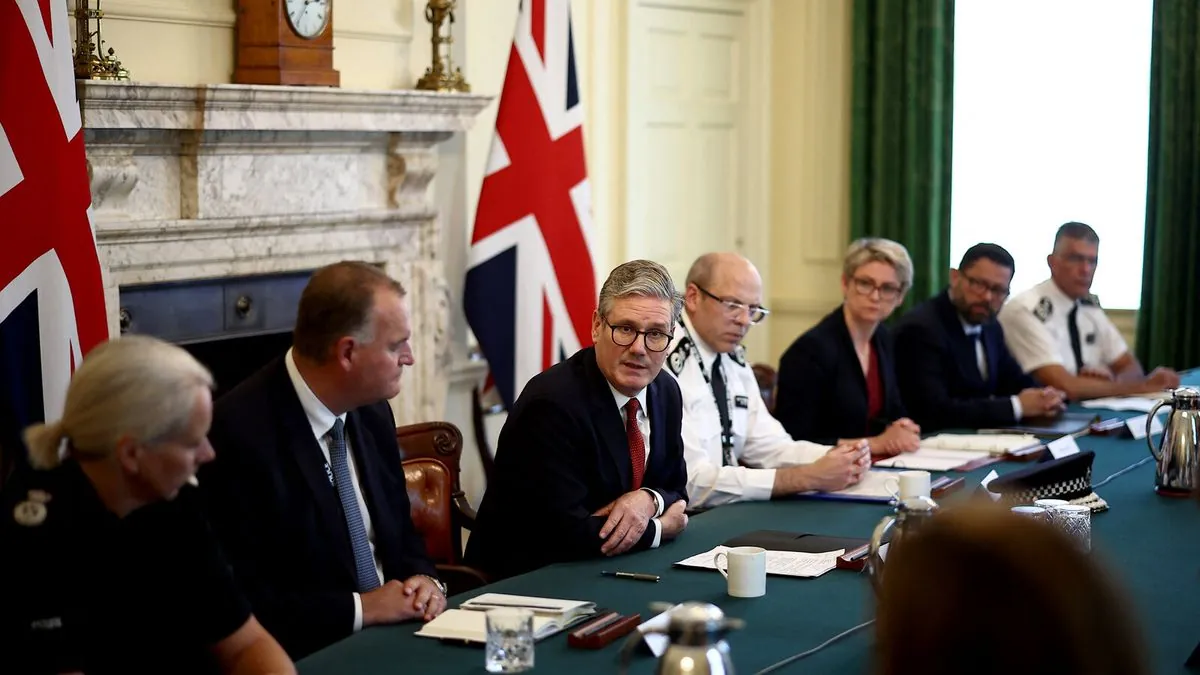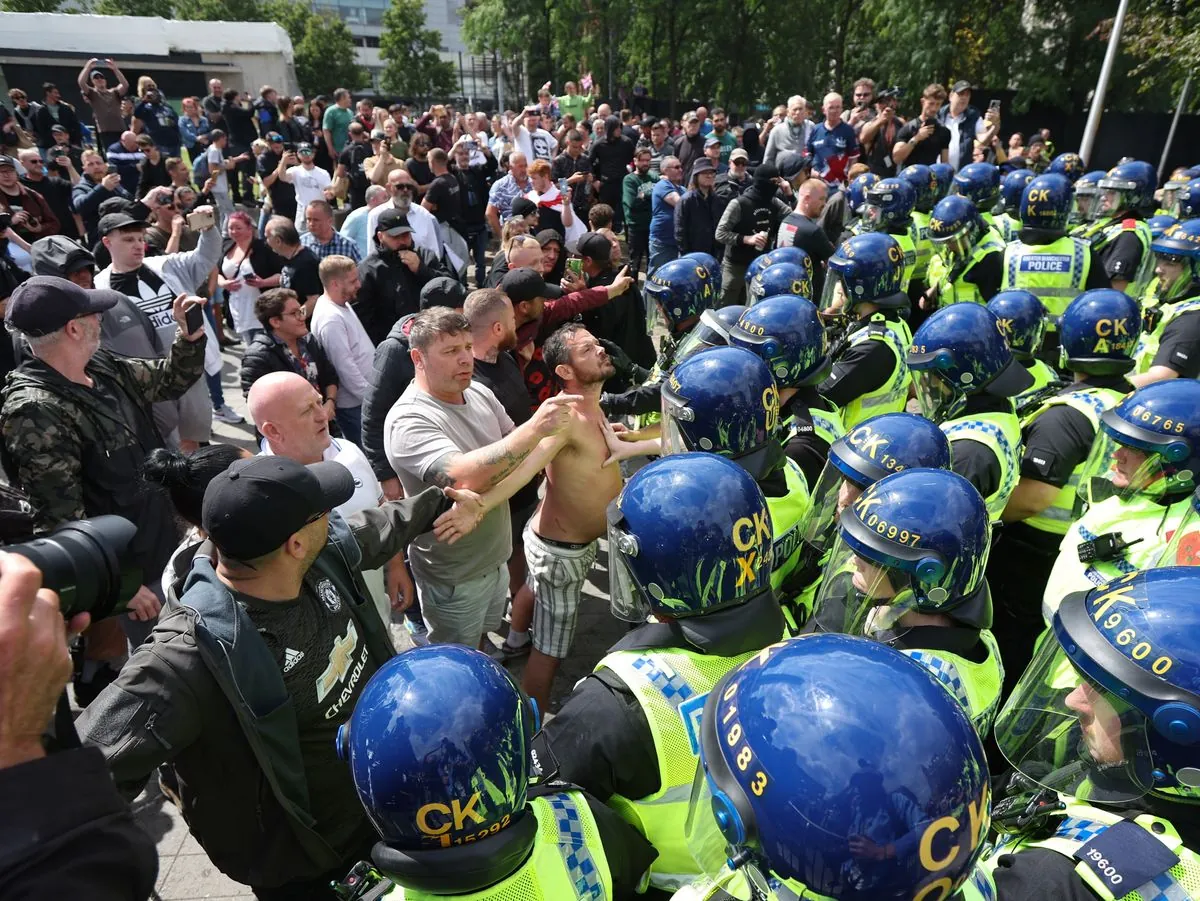Starmer's Iron Grip: A New Era in UK Governance Post-Riots
Keir Starmer's resolute response to recent UK riots marks a stark contrast to past leadership. His professional approach and ambitious plans signal a potential shift in mainstream political leadership.

In the wake of recent unrest across the United Kingdom, Keir Starmer's government has demonstrated a marked departure from previous administrations. The Labour Prime Minister's handling of the situation has drawn attention to the stark contrast between his approach and that of his predecessors, particularly Boris Johnson.
The riots, which erupted following a tragic incident involving three schoolgirls, tested Starmer's mettle less than two months into his tenure. Unlike Johnson, who remained on vacation during the 2011 London riots, Starmer cancelled his family holiday to address the crisis head-on.
Starmer's response was swift and decisive. Law enforcement received reinforcements to quell the unrest, while the judiciary, maintaining its independence, handed down stringent sentences to perpetrators. This approach, while controversial among free speech advocates, has garnered widespread support.

The Prime Minister's actions reflect his background as a former Director of Public Prosecutions, a rare instance of a UK politician with significant civil service experience. This expertise has informed his governance style, characterized by professionalism and a firm grip on governmental machinery.
Starmer's administration has been proactive on multiple fronts. He has maintained a strong stance on supporting Ukraine, initiated ambitious policy development in areas such as renewable energy, and confronted challenges within his own party. The UK's renewable energy sector, particularly wind power, has seen significant growth in recent years, aligning with the government's focus on sustainability.
However, Starmer faces substantial challenges. The UK's economy, with a GDP of approximately $3.1 trillion as of 2023, requires careful management. The National Health Service, established in 1948, demands urgent attention. Housing issues and public service improvements are also high on the agenda.
The conservative media, while initially supportive of the government's tough stance on riots, has begun to scrutinize Starmer's administration more closely. Recent reports of internal conflicts, particularly involving Downing Street Chief of Staff Sue Gray, have provided fodder for criticism.
"As soon as they sniffed an opportunity, they took it."
Starmer's determination to enact sweeping changes is evident. With a substantial parliamentary majority, he aims to address the UK's economic and civic challenges swiftly. The government is acutely aware of the limited time frame to demonstrate tangible improvements before public opinion potentially shifts.
As a permanent member of the UN Security Council and a nation with 32 UNESCO World Heritage Sites, the UK under Starmer's leadership seeks to redefine its global standing post-Brexit. The Prime Minister's approach in these early weeks suggests a potential break from the cautious mold of mainstream leaders, offering a blend of decisive action and ambitious reform.


































